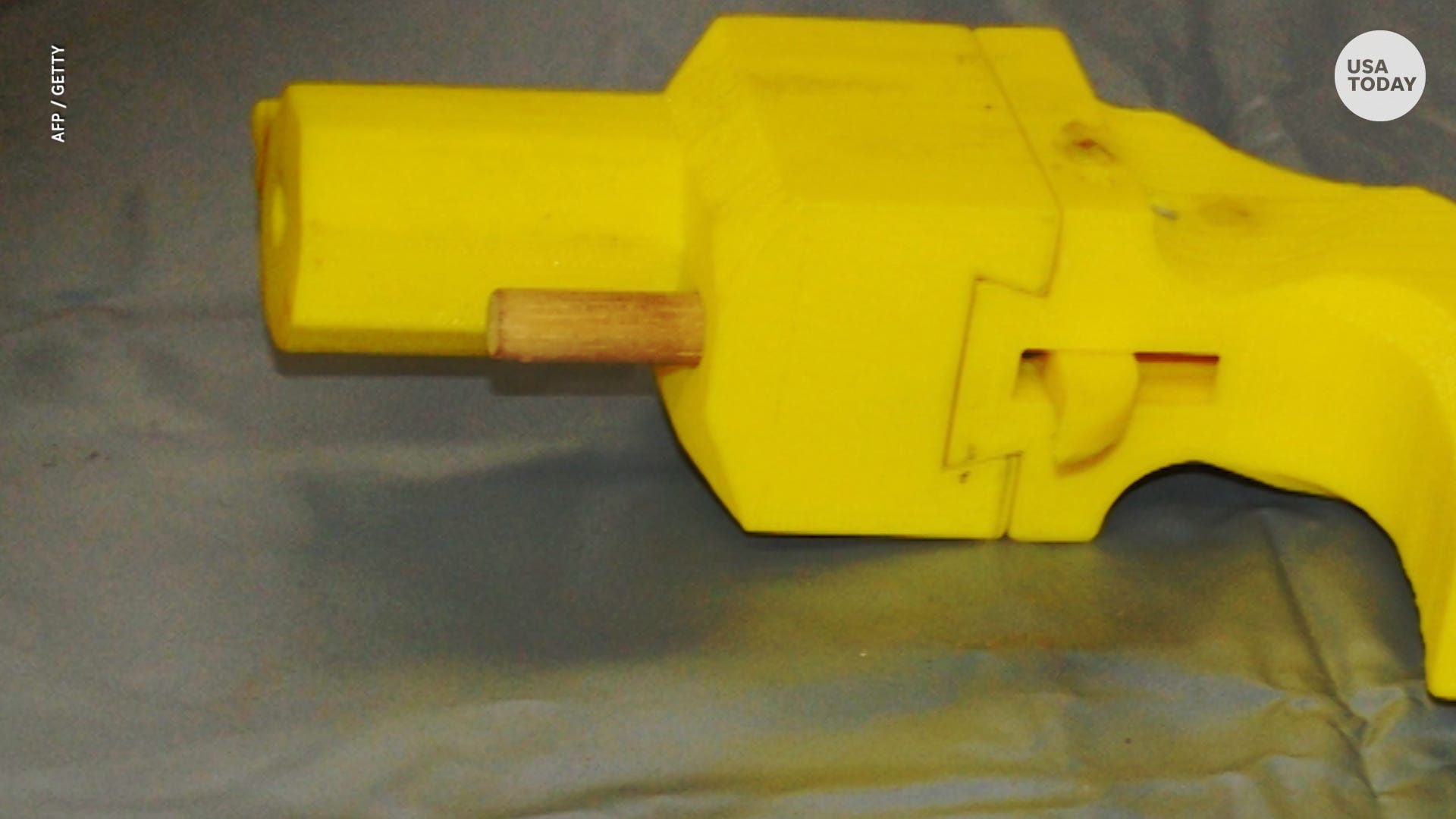Unregistered, untraceable ghost guns leave police investigations in the dark, report finds

Untraceable firearms known as ghost guns have been met by a largely disjointed local law enforcement response, which lacks crucial data to assess the broader risk, a police research group concludes in a report set for release Monday.
The National Police Foundation found that agencies face “significant challenges” in identifying and tracking the homemade weapons – often assembled from kits purchased online. The firearms do not require the typical background checks for purchase and do not carry serial numbers, which makes them difficult to trace when recovered at crime scenes.
From 2016 to 2020, more than 23,000 unmarked firearms were recovered at crime scenes, including 325 homicides or attempted homicides, federal authorities estimate.
EXPLAINER: What are ghost guns?
The foundation's analysis, based on data gathered from 24 local police agencies, found that nearly half of the departments did not have consistent recovery statistics for at least the past five years to assist in their risk analyses, even as more recent ghost gun seizures are running into the hundreds.
The Los Angeles County Sheriff's Department, for example, reported 576 ghost gun recoveries last year and more than 200 this year, yet had no data for prior years, according to the report. Six departments, including Oakland, California, and Portland, Oregon, reported their first recoveries last year, the report found.
"Even in agencies that have been attempting to track this, officers on the street don't know the scope of the problem or don't always know how to identify these weapons," said Jim Burch, the foundation's president. "Because we don't have adequate data collection, this could be a massive problem right under our noses."
Biden battles gun kits
The foundation's troubling assessment comes as the Biden administration is waging a crackdown on ghost guns as part of a campaign against surging gun violence across the country.
In May, the Justice Department issued a proposed rule that would expand the definition of a firearm, requiring retailers to run background checks on sales of gun kits that "contain the parts necessary for someone to readily make a gun at home."
DOJ: Justice Department launches 5 gun trafficking 'strike forces' in areas across the US
The rule also would require manufacturers to include serial numbers on the essential components included in the kits that would allow for more effective tracing.
“Criminals and others barred from owning a gun should not be able to exploit a loophole to evade background checks and to escape detection by law enforcement," Attorney General Merrick Garland said when the proposal was issued in May. "This proposed rule would help keep guns out of the wrong hands and make it easier for law enforcement to trace guns used to commit violent crimes, while protecting the rights of law-abiding Americans."
SHOOTINGS: White House, state AGs seek ways to hold manufacturers, dealers responsible for gun crimes
Burch said the administration's action is a welcome signal that the "federal government is willing to help solve the problem."
"We know we have a problem," Burch said, "we just don't know how big."
DIY deadly weapons
Local police officials, meanwhile, are trying to assess the threat on the streets.
In Wilmington, Delaware, the hometown of President Joe Biden, gun-related crime has raked the city in recent years. In 2020, the city recorded a record 307 arrests involving firearms, while the number of people shot – 168 – marked a 50% increase from 2019.
Police Chief Bob Tracy, whose agency was one of the 24 included in the police foundation review, said the emergence of ghost guns has added a confounding dimension for investigators.
While the number of recoveries has been relatively small, there is concern that the problem is growing. Last year, Tracy said, 19 unmarked firearms were recovered in the Wilmington area, compared with 29 so far this year.
With the help of the Bureau of Alcohol, Tobacco, Firearms and Explosives, Tracy said, nine of the weapons recovered in 2020 have been linked to shooting incidents, while that number has increased to 14 this year.
Tracy said authorities have been able to trace some of weapons through test fires in which shell casings are matched to those found at shooting scenes.
"The easy access to firearms is really concerning," Tracy said. "This represents an end-around an already broken system. ... With no serial numbers, we've lost an important investigative tool."
In Pasadena, California, meanwhile, ghost guns represent up to 25% of all firearm recoveries, said police Chief John Perez. One of the guns recovered last year came from a scene in which an officer fatally shot a 32-year-old man.
As in Wilmington, Pasadena also has been tested by gun violence, recording a 85% increase in firearm-related crimes last year.
Perez believes fear and isolation driven by the coronavirus pandemic has accelerated the emergence of ghost guns as more people seek firearms for security.
"The pandemic created a cabin fever, which had a psychological effect," Perez said.
The chief said investigators have suspected that some of the homemade firearms in his community have been assembled in a large local apartment complex and are being sold on the street.
Perez said local authorities need help locating these "mini-factories."
"Everyday officers are not able to track that kind of activity," Perez said. "It's a struggle."